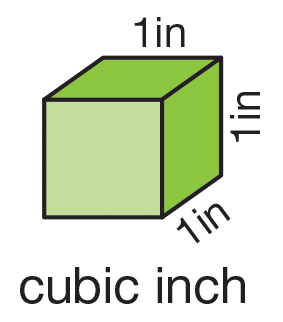C
calculation
The act or result of using math operations (addition, subtraction, multiplication, or division) to determine an answer.
calculator
A tool that can help with mathematics. It can be used to check calculations and to see if answers to problems are reasonable.
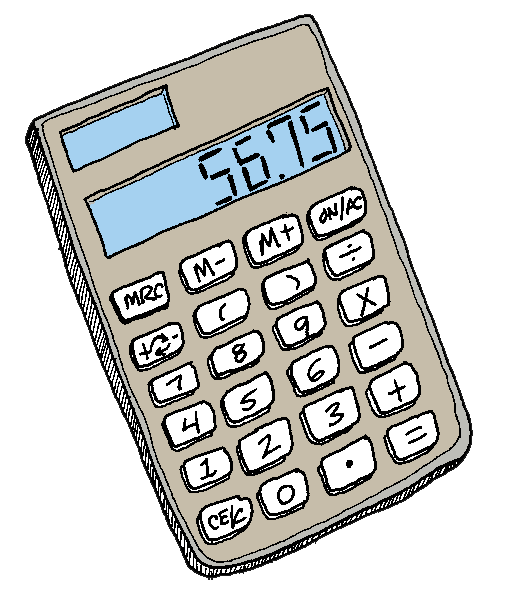
centimeter (cm)
A unit of measure in the metric system. 100 cm = 1 meter.
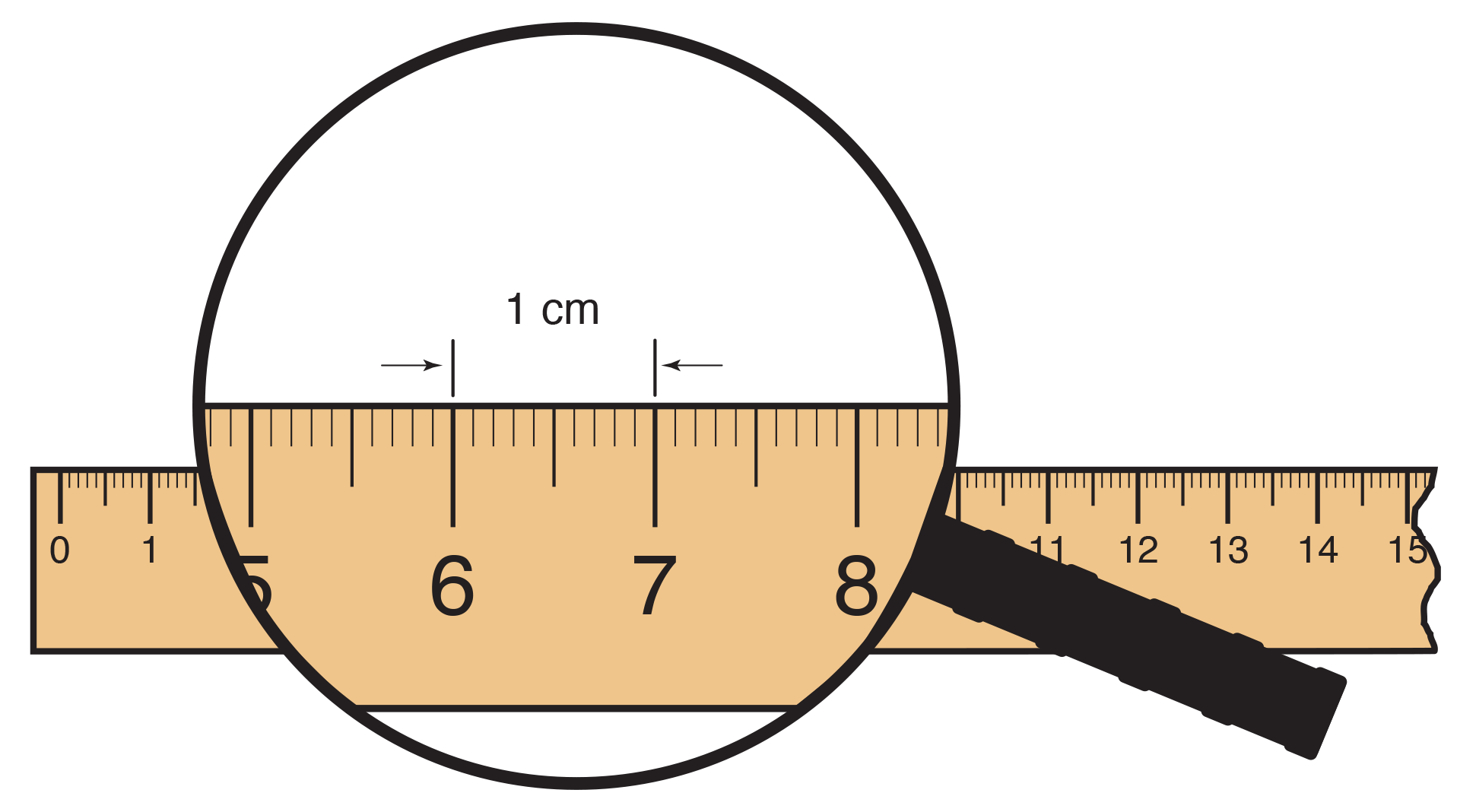
circle
A two-dimensional (2-D) shape that is curved. Every point of the curve is the same distance from the center.
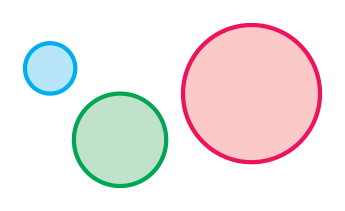
clockwise
Moving in the same direction as the hands of a clock. (See also counterclockwise.)
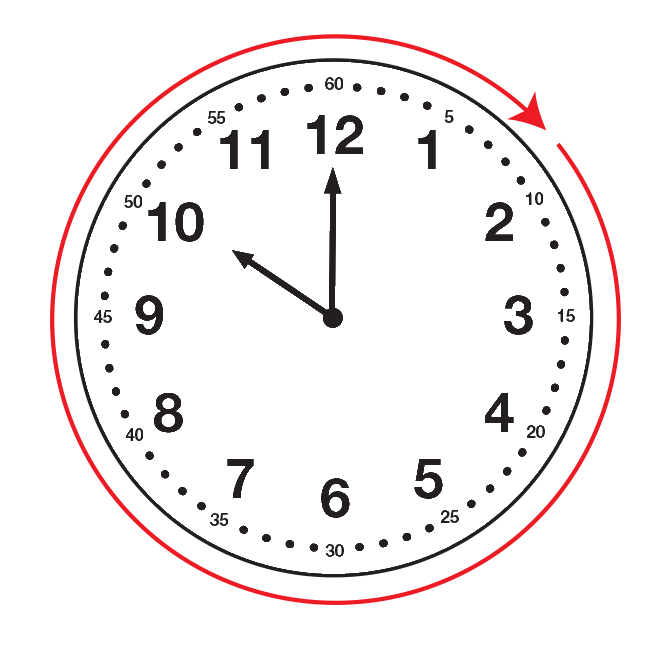
column
Figures or numbers arranged one above the other. Columns go up and down, or vertically. (See also row.)
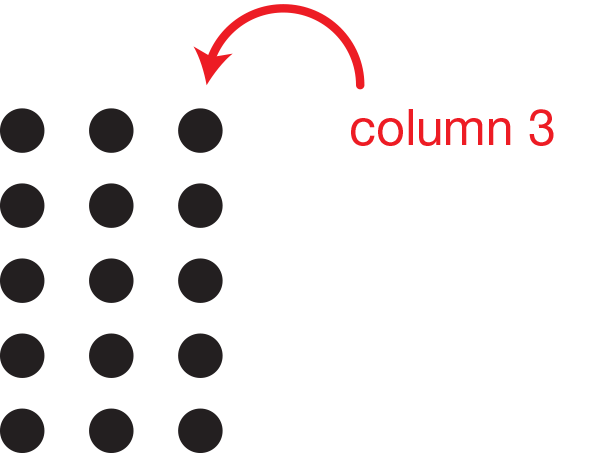
commutative property (of addition)
Changing the addends does not change the sum. For example,
(of multiplication)
Changing the order of the factors does not change the product. For example, 3 x 5 = 5 x 3. (See also turn-around fact and turn-around rule.)
compact method
A method of problem solving by calculating one column at a time, starting on the right and making trades.
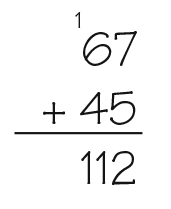
compare
To show or tell how two things are similar or different from each other. You often compare amounts or numbers to find which is smaller or larger. (See also greater than and less than.)

constant math hopper
A math hopper that always makes the same size hops on a number line. (See also math hopper.)

corner
The place where the sides of a 2-dimensional (2-D) shape or the edges of a 3-dimensional (3-D) shape meet to form an angle.

counterclockwise
Moving in the direction opposite to the rotation of the hands of a clock. (See also clockwise.)
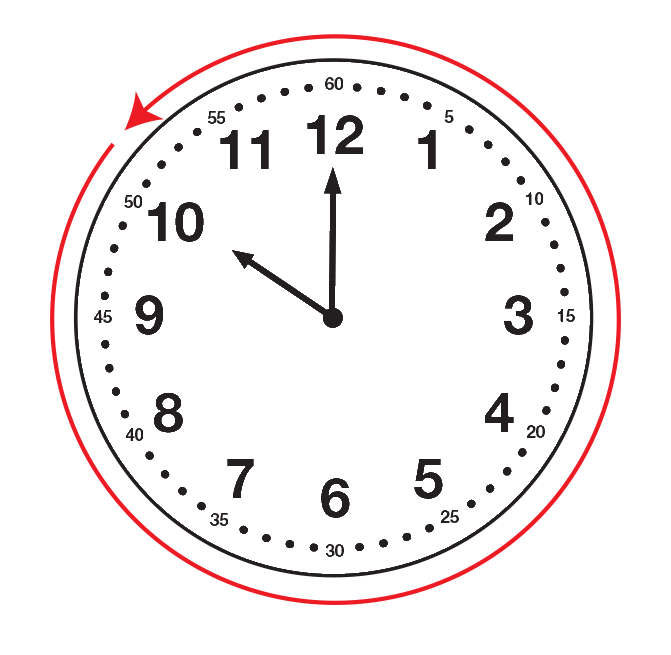
counting all strategy
An addition strategy in which you start at zero and count all the numbers until you reach the total.
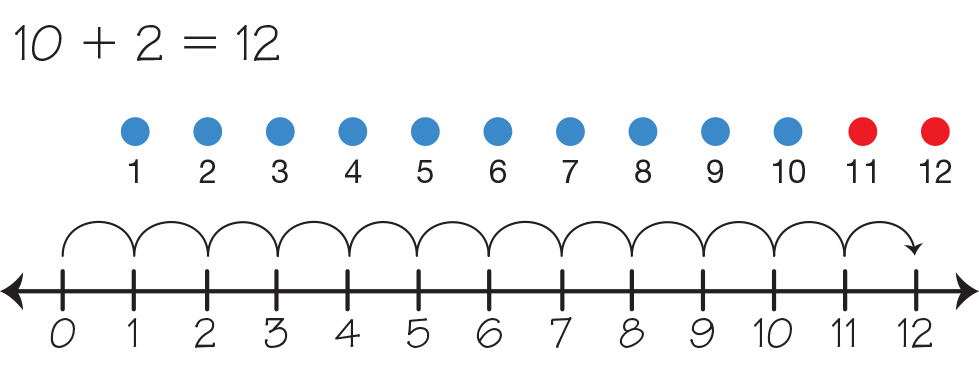
counting back strategy
A subtraction strategy in which you start from the larger number and count back the smaller number to find the difference. For example, for 9 − 2, begin with 9 and count back 2: 8, 7.
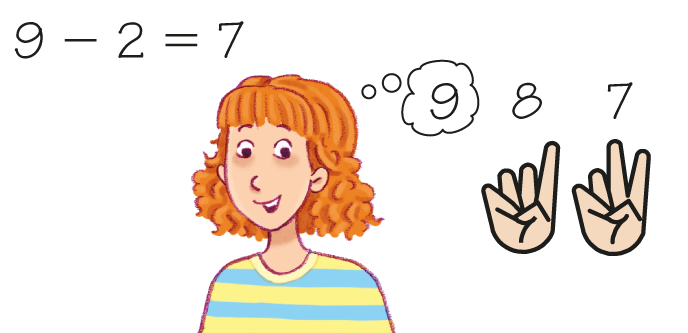
counting board
A counting device often made of stone or wood and used with beads or pebbles.
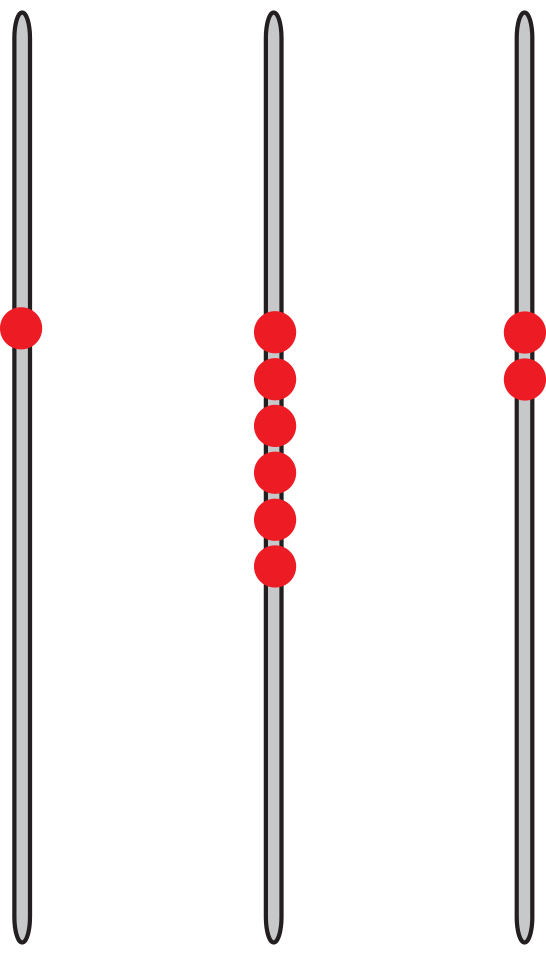
counting on strategy
An addition strategy in which you start with one addend and count forward the amount of the second addend to find the total. For example, for 9 + 4, begin with 9 and count four more: 10, 11, 12, 13.
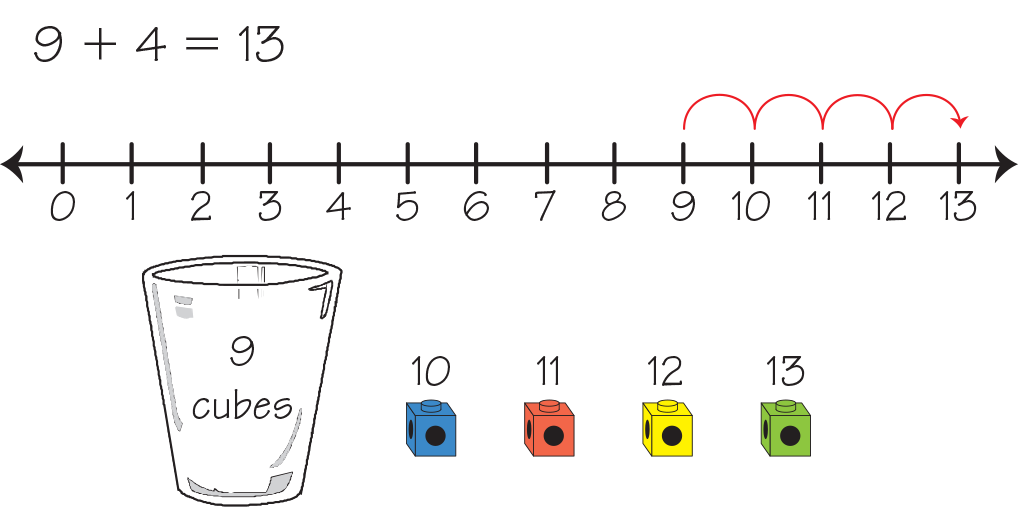
counting up strategy
A subtraction strategy in which you start from the smaller number and count how
many numbers to the larger one. For example, to find
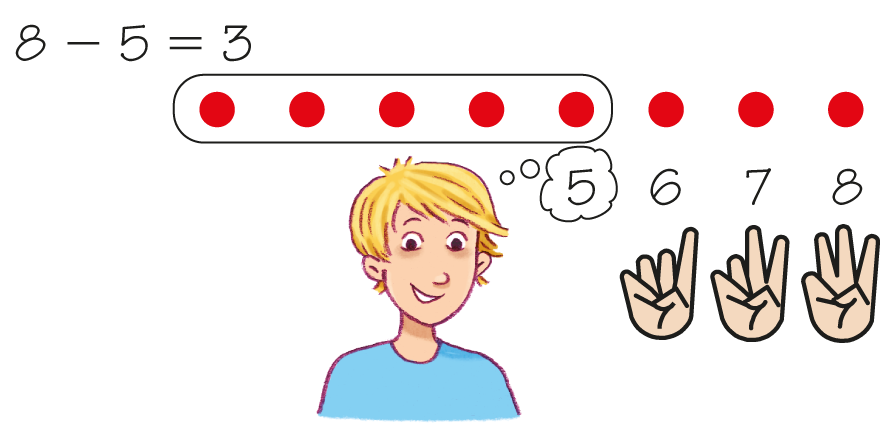
cube
A three-dimensional (3-D) shape with six square faces that are equal in size.

cubic centimeter (cc)
A cube-shaped unit used to measure volume that is 1 cm along each edge. 1 cubic centimeter (cc) = 1 milliliter (ml). (See also milliliter.)
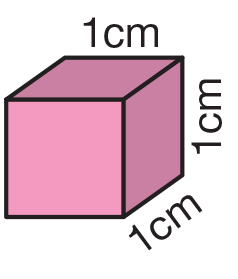
cubic unit
A cube-shaped unit used to measure volume. For example, the cube may measure 1 cm or 1 inch along each edge. (See also cubic centimeter.)
